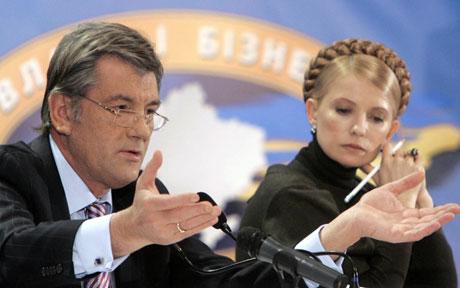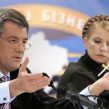
U.S.-Ukraine “Tough Love:” the Feeling is Mutual
Publication: Eurasia Daily Monitor Volume: 6 Issue: 145
By:

U.S. Vice-President Joe Biden’s visit to Ukraine (EDM, July 28) underscored the shift from enthusiastic support of Euro-Atlantic integration goals to conditional support, depending on Ukraine’s own performance. Dubbed "tough love," this revision in U.S. policy was long in the making, but had not received official high-level expression until now. A "tough-love" U.S. policy had begun to emerge in response to the post-Orange revolution crisis in Ukraine’s institutions and governance. However, the policy change was not officially conceptualized or articulated, nor clearly visible to the public. The Bush administration’s loss of focus on Europe’s East delayed this reformulation of policy; and its sudden, enthusiastic but short-lived burst of support for Ukraine’s NATO candidacy obscured the actual U.S. shift toward a "tough-love" policy.
Thus, the Obama administration is formalizing and articulating a policy change that was already developing under its predecessors. As expressed by the Bush administration’s senior State Department official handling Ukraine, David Kramer, the United States can help the country to the extent that Ukraine helps itself (David Kramer, "Biden’s Critical Trip to Ukraine and Georgia," GMF Policy Brief, July 17), which indeed became Biden’s message in Kyiv.
The tough-love feeling, however, turned out to be mutual. Excepting the weakened President Viktor Yushchenko, Ukrainian leaders and parties made clear during Biden’s visit that they do not expect unilateral U.S. favors; and also that Russia is a factor to be taken into account in Ukraine, particularly in an election year.
Biden spoke with extraordinary frankness about the dysfunctional aspects in Ukraine’s political and economic systems in both of his public appearances in Kyiv. Portraying its political leaders as less mature than their own people, he wondered "why communication among leaders has broken down [and] political posturing prevents progress." He told the political establishment in nearly-admonitory terms that Ukraine needs accountability in governance, "an independent court system as a check on the corruption that fuels cynicism and limits growth." He chastised energy waste in Ukraine, called for phasing out energy subsidies to consumers, and openly invoked the "strings attached" to any U.S. or IMF lending to Ukraine, and reminded his audiences that "friendship requires honesty." Based on shared goals, however, "the United States and Ukraine will work together in the months and years ahead to strengthen the strategic partnership" (Vice-President Joseph Biden, speech at Ukraine House and news conference in Kyiv, White House press releases, July 21, 22).
Both sides were careful to de-emphasize NATO during Biden’s visit. Biden alluded to it obliquely as "Euro-Atlantic integration" (upholding any country’s right to opt for it) and made only one direct reference to NATO: "The United States also supports Ukraine’s deepening ties to NATO and to the European Union. But again, we recognize that they are your decisions, not ours, whether you choose the E.U. and NATO….How far and how fast to proceed is, again, a uniquely Ukrainian choice, not ours."
Among the top politicians, Yushchenko alone spoke out for Ukrainian membership in NATO during Biden’s visit, describing this as the only real protection against a Russian sphere of influence (Interfax-Ukraine, UNIAN, July 22). Prime Minister Yulia Tymoshenko avoided the subject altogether. Party of Regions leader Viktor Yanukovych alluded to NATO negatively by saying that "between war and peace, I have chosen peace." While the other presidential aspirant, Front for Change leader Arseniy Yatseniuk, calling for a "new agenda" in Ukraine-U.S. relations, announced that he discussed economics, not NATO with Biden (Interfax-Ukraine, UNIAN, July 21, 22).
Support for closer relations with NATO has become an internal political liability in Ukraine. Among the potential candidates in the January 2010 presidential election, Yushchenko -with a popularity rating in the low single-digits- no longer has anything to lose; Tymoshenko has everything at stake; Yanukovych and his party are on record against a NATO membership track; and Yatseniuk has been removed from the parliament’s chair, in part for having co-signed last year with Yushchenko and Tymoshenko the application letter for a Ukrainian Membership Action Plan (MAP) with NATO.
Shortly before Biden’s visit, the United States and more than a dozen NATO member countries had to cancel the U.S.-led Sea Breeze-2009 exercise in Ukraine. The Verkhovna Rada declined to grant the necessary authorization for the participating troops’ entry to Ukrainian territory (EDM, June 23). Awaiting the presidential election, and with a defense ministry lacking a minister and other top officials, there seems to be no movement on Ukraine’s Annual National Plan, the substitute for MAP. Any real progress in Ukraine-NATO relations will be contingent on the presidential election’s outcome. Unlike the previous election in 2004, Russia and the United States do not seem to support any particular candidates in the upcoming election.




